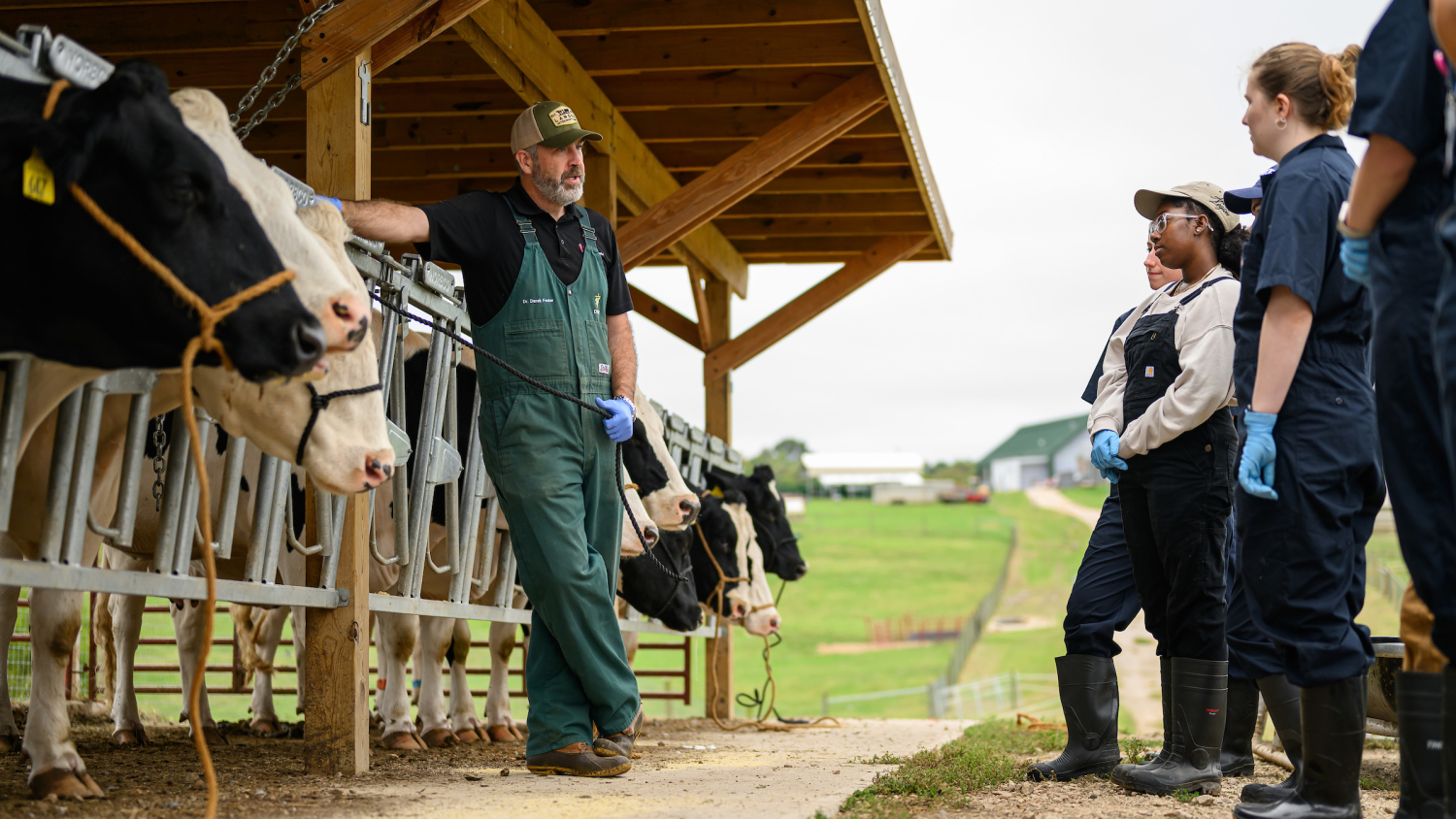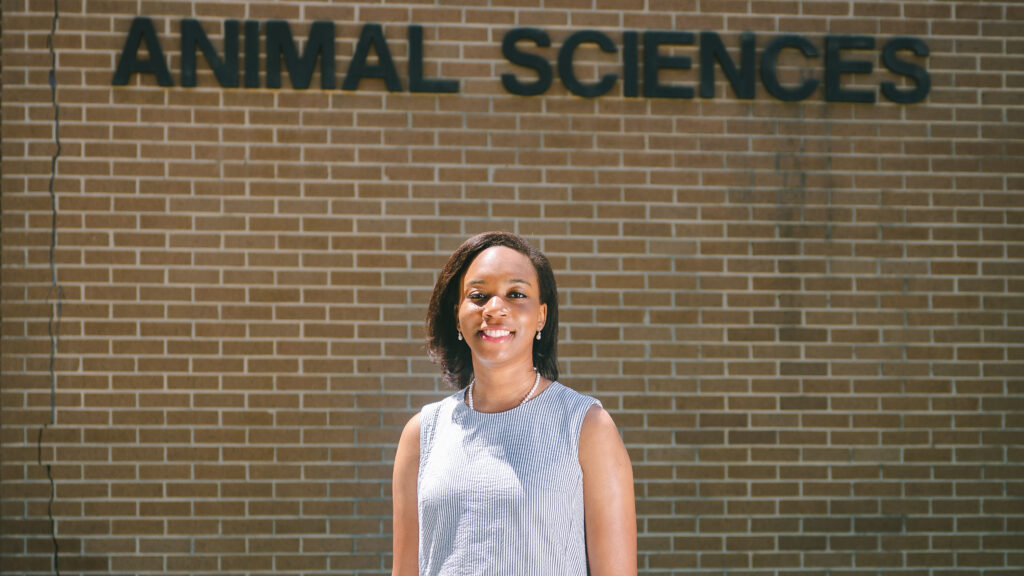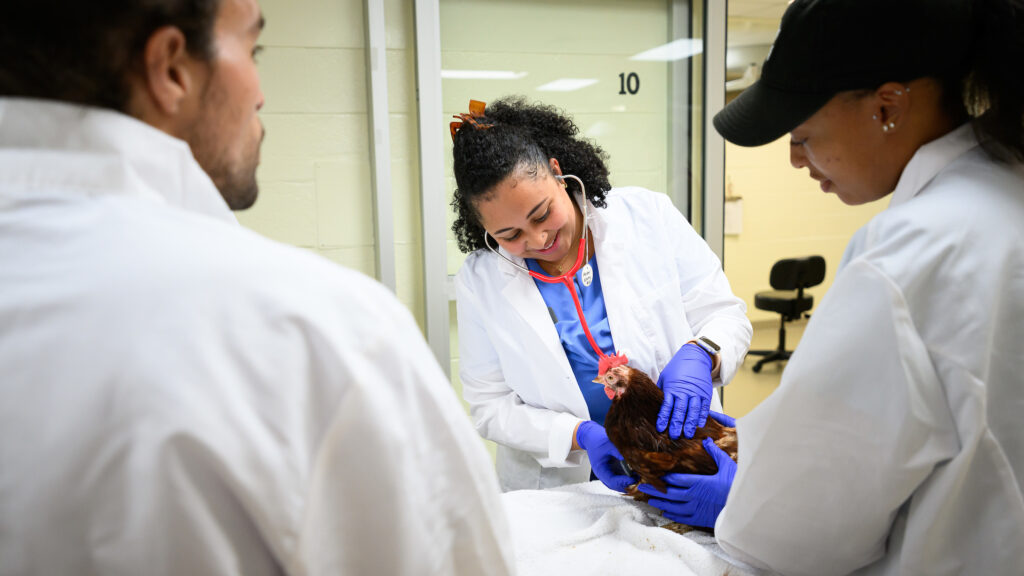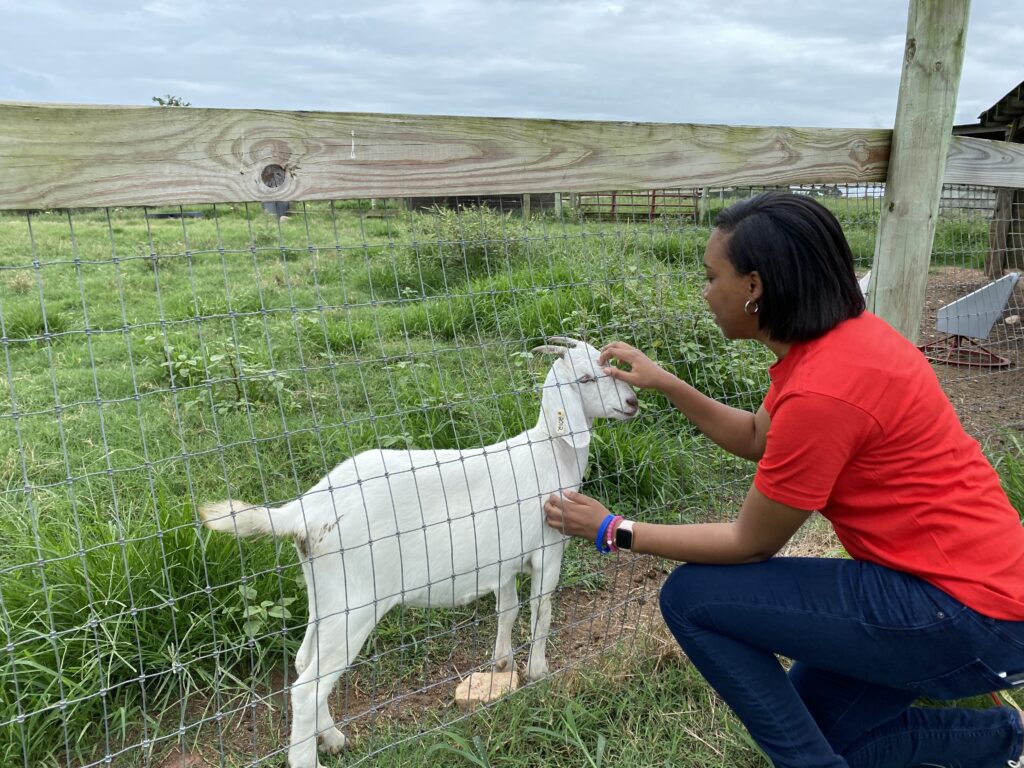NC State Scholars Program Fosters Food-Focused Future Vets

When Kinnidy Coley started college at North Carolina Agricultural and Technical State University in 2016, she knew her future involved caring for food animals.
She had chosen NC A&T for its Animal Sciences program, hoping to continue working with farm animals like she had done through the National FFA Organization in high school.
Plus, she recognized that the Food Animal Scholars program, an NC State offering run in collaboration with NC A&T, granted qualified students early admission to the NC State College of Veterinary Medicine and could help her kickstart her interest in becoming a food animal veterinarian.
Coley was named a Food Animal Scholar in spring 2019. Now a third-year student at the NC State College of Veterinary Medicine, she says the program connected her with mentors and internship opportunities that prepared her to excel at the CVM while still an undergraduate and enriched her animal education as she earns her DVM.
“There’s a lot of need for more food animal veterinarians, and this program helps in filling that need by helping students find pathways in their pre-vet and veterinary studies,” Coley says. “It helps support that next generation.”

The Food Animal Scholars program, now in its 20th year, was designed to do just that: Give top-notch undergraduate students studying animal or poultry science the resources to pursue that passion within veterinary medicine, says Dr. Glen Almond, program committee chair.
Interested NC State and NC A&T students apply in the fall of their undergraduate junior year. This year’s deadline is Nov. 1.
“We’re graduating veterinarians that are truly dedicated to food animal production and the poultry industry in North Carolina,” says Almond, a professor of swine health and production management. “And we’re trying to produce enough veterinarians to oversee the health and welfare of livestock production: the animals’ health depends on their vets, and that’s what we’re supplying.”
Food animal veterinarians make up a small percentage of U.S. veterinarians in clinical practice, but they play a key role in ensuring the welfare, health and safety of livestock in North Carolina and nationwide. Just 3.9% of U.S. vets are food animal-focused, according to the American Veterinary Medical Association.
The CVM has graduated over 100 Food Animal Scholars so far, Almond says. Graduates have gone on to lead production at big-name swine farms across the U.S., found their own large or mixed animal practices helping individual farmers, and work for state and federal government food safety inspection programs, among other careers.
Dr. Derek Foster, a Food Animal Scholars program mentor and committee member, says he has seen previous scholars now with their own practices hire younger graduating scholars.
Agriculture, including animal production, is the largest industry in North Carolina’s economy, he says, and few states have the same diversity of food animals. These veterinarians are critical for North Carolina’s farmers to be successful and for consumers to have confidence that their food is safe and comes from animals that have led good, healthy lives.
“The College of Veterinary Medicine has an obligation to support our livestock owners in the state of North Carolina,” Foster says. “That is a key mission of our college. As the food animal industries have changed, the needs of those producers are changing. And so by being able to identify these students early in their education, it helps us give them the skills they need to be valuable to the changing animal agriculture in the United States.”
NC State offers a Food Animal Production Medicine focus area open to all DVM students, but those in the Food Animal Scholars program start specializing early. Scholars are required to do a food animal-focused summer internship between their junior and senior years of undergrad, Almond says.
The program is a joint effort between the NC State College of Agriculture and Life Sciences and the College of Veterinary Medicine.
Faculty from those NC State colleges and NC A&T’s College of Agriculture and Environmental Sciences select six scholars each year, with a preference for at least one swine- and one poultry-focused student in each cohort, to be granted admission to the College of Veterinary Medicine.
“As a veterinary community, we are serving a diverse population, and so ensuring that our professionals are also coming from diverse backgrounds and can work with diverse populations is going to be key,” says Dr. Andrea Gentry-Apple, a coordinator of veterinary education at NC A&T. “And so A&T plays a large role in recruitment within the Food Animal Scholars program.”

Gentry-Apple is a former Food Animal Scholar from the class of 2015. She applied while studying Animal Science at NC A&T, and she shares her own experiences in the program when advising interested students.
“I enjoyed being able to expand my knowledge from different practitioners around the country, and being a Food Animal Scholar allowed me to go out and experience what real-world medicine looked like,” says Gentry-Apple, who completed a large animal rotating internship at Tuskegee University in Alabama after earning her DVM.
As Coley’s pre-vet adviser at A&T, Gentry-Apple encouraged her to apply to the program.
Coley, who had worked primarily with poultry in high school, developed an interest in small ruminants during college and entered the Food Animal Scholars program wanting to work with goats and sheep.
That led to her completing an animal husbandry internship at Purina, where she spent a summer raising baby goats.
“The Food Animal Scholars program advisers are phenomenal for helping students find their pathways into what they want to do and what they like,” Coley says. “Especially when you get to vet school, there’s a ton of opportunity for exploration into different career fields.”
Now an experienced scholar, Coley serves as a program representative for interested students, supporting them just as Gentry-Apple and others did for her.
“There are only two land-grant schools in the state, North Carolina A&T and NC State, and the Food Animal Scholars program forms an awesome partnership between them,” she says. “We’re combining the powers of the two schools to train future agriculture veterinarians and improve state agriculture together.”
